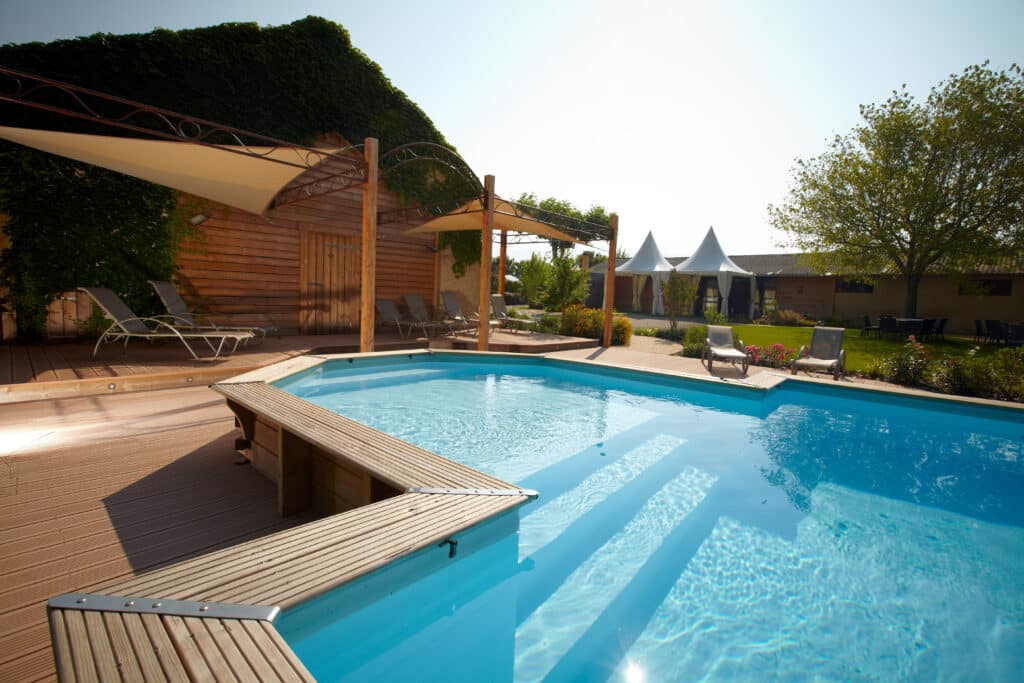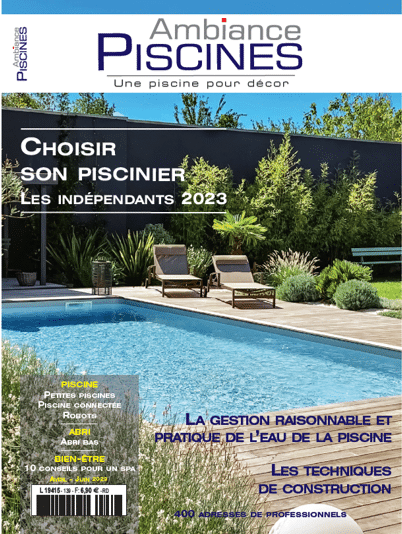Autumn is the right time to switch from project mode to actually building your pool! It's a project that needs to be carefully thought through to avoid unpleasant surprises: a feasibility study, choice of professionals, submission and approval of the building permit, choice of materials and equipment, and project management all take several months to get a pool that lives up to your dreams! What's more, good builders have full order books, because all customers are like you: they're dreaming of enjoying their pool for the next season! Here's some advice on how to make your project a reality.

Some of your decisions will have an impact not only on your construction budget, but also on your energy and water consumption over the long term.
The technical room or pool house allows you to control your pool so that upkeep and maintenance operations can be carried out easily. It contains the filtration system, pump, water treatment and heating equipment. Finally, if you'd like to use your pool house as a storage area, taking administrative steps may be required (depending on your country) such as :
Depending on your budget, you can choose manual or smart equipment, such as ICO the pool water analyzer hat can be integrated into your home automation system.
Finally, if you're building your pool on your own or using the services of a professional, it's very important to make sure you comply with the regulations and standards in force in your country:
Calling in a professional is recommended if you want an in-ground or semi-in-ground pool, as it requires a great deal of skill and guarantees compliance with standards and regulations. To carry out your project, you need to pay close attention to a number of criteria and seek out as much information as possible before committing yourself to the contractor of your choice.
Pour profiter de votre piscine l’été prochain, n’hésitez pas à contacter des professionnels dés la fin d’été ou le début d’automne ! N’hésitez pas à vous appuyer sur un réseau de professionnels agréés et à consulter les avis de clients. Enfin pour choisir vos équipements et vous inspirer, rien de mieux que de visiter des showrooms, des salons et de lire la presse spécialisée Côté Piscine, Ambiance Piscines .


| Cookie | Duration | Description |
|---|---|---|
| cookielawinfo-checkbox-analytics | 11 months | This cookie is set by GDPR Cookie Consent plugin. The cookie is used to store the user consent for the cookies in the category "Analytics". |
| cookielawinfo-checkbox-functional | 11 months | The cookie is set by GDPR cookie consent to record the user consent for the cookies in the category "Functional". |
| cookielawinfo-checkbox-necessary | 11 months | This cookie is set by GDPR Cookie Consent plugin. The cookies is used to store the user consent for the cookies in the category "Necessary". |
| cookielawinfo-checkbox-others | 11 months | This cookie is set by GDPR Cookie Consent plugin. The cookie is used to store the user consent for the cookies in the category "Other. |
| cookielawinfo-checkbox-performance | 11 months | This cookie is set by GDPR Cookie Consent plugin. The cookie is used to store the user consent for the cookies in the category "Performance". |
| viewed_cookie_policy | 11 months | The cookie is set by the GDPR Cookie Consent plugin and is used to store whether or not user has consented to the use of cookies. It does not store any personal data. |